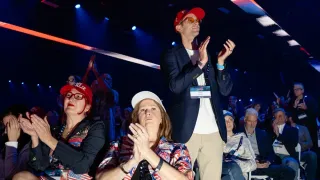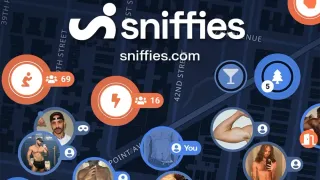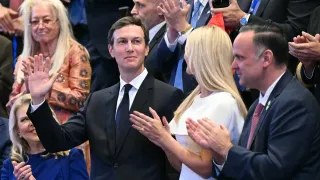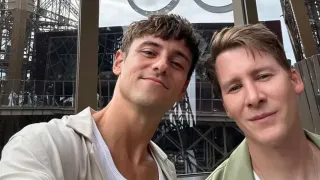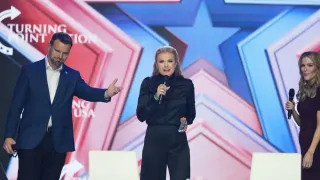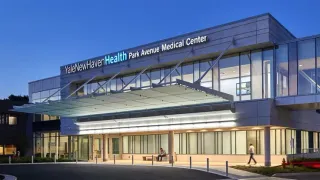November 20, 2016
LGBTs Across Country React to Trump Win
Seth Hemmelgarn READ TIME: 4 MIN.
Last Saturday, as people marched down San Francisco's Market Street protesting Republican Donald Trump's election as president, James Robinson, CEO of Free2Be in Huntsville, Alabama, wept as he said, "I'm very proud of the people peacefully protesting in our big cities where they're able to do that ... I wish I could be with them."
Like many LGBTs across the country, Robinson, 53, is concerned about what Trump's administration may do. The billionaire businessman's rhetoric during the campaign has encouraged hostility toward LGBTs, Muslims, people of color, immigrants, and other groups.
People at LGBT organizations in several states said that the election has been tough on clients and heightened worries about funding, but they've also seen support.
"Huntsville is by far the most progressive city in Alabama," and the city is one of the most progressive cities in the South, said Robinson, whose organization provides counseling, advocacy, and other services.
However, he said, many LGBTs, especially transgender people, are still worried about how a Trump administration may impact them.
Clients who came in for regular appointments the day after the election "were so traumatized our therapist felt the need to do risk assessments on them" to try to ensure they weren't going to harm themselves, he said.
Vincent Rutherford, 52, who's gay and serves as director of Huntsville's Rocket City Pride, said the election "gave me flashbacks to the 1980s. ... I just had to lock myself in the house that next day and try to deal with it. I kept having flashbacks to other horrible times in my life and being afraid."
Making things worse was his neighbor, a Republican and retired Baptist preacher who'd "kept saying 'Trump's going to win,'" Rutherford said.
"The morning after, he's knocking on my door," he said. Rutherford "closed the blinds and locked the door," but he could hear the man making cheers like "He won," and "We're taking the country back."
"It was horrifying," Rutherford said.
The day prompted memories of his first boyfriend, who'd been beaten to death.
"I kept seeing him in the coffin with the towel over his face," and "his pants and the color of them that day just kept flashing into my head," Rutherford, who's originally from Florida, said. He also remembered seeing people die from AIDS.
"I had flashbacks of people sitting on the street ... they looked like they were starving to death. No one would go up to them," Rutherford said.
Since last week's election, he's seen trouble just outside Huntsville, with people driving around with Confederate flags and signs saying "fags," "Mexicans," and the N-word should "get out."
"I'm sure it will cool down," but Trump's election "seems to have emboldened these people to feel free to do this. They feel the whole country is on their side now," Rutherford said.
'Sheer Terror'
In the rural town of Hickory, North Carolina Friday night, several people gathered for a "Unity in the Community" gathering.
Michelle Mathis, 45, who identifies as queer, is a pastor at Hickory's Olive Branch Ministry, which she runs with her wife, Karen Lowe, 50.
"The concerns I'm hearing are just sheer terror," Mathis said.
"We're seeing, even in the last couple days, an increased number of rebel flags that are flying," and she's heard of people with rainbow stickers on their cars being called "faggot."
"They're doing that because the new president-elect has made it OK by his own rhetoric," Mathis said. "He has made it OK to verbally accost individuals," and he's made it all right to physically attack LGBTQs, Latinos, Muslims, and others.
Mathis said the area "usually" has an attitude of "live and let live," but the atmosphere had already "gotten ugly" because of House Bill 2. That "had died down to a certain extent," she said. Mathis was referring to the state law banning local cities from adopting non-discrimination laws and requiring transgender individuals to use public restrooms based on the gender assigned to them at birth.
"The LGBTQ and ally community, it's very strong in this area," Mathis said. "Not everybody is out, but we do come together to support each other in times like this."
Kally Henson, 41, a transgender woman who lives in Hickory, said that so far, anti-trans comments haven't been made to her.
"I'm still transitioning," Henson said. "I can pass fairly well, but at the same time I don't want to risk something bad happening."
There are places she avoids.
"Trying to stay safe is going to be that much trickier for the next little while," said Henson, who'd felt safe before the election.
"The LGBT community had a pretty good thing going," she said, "... but I'm not sure how that's going to go now."
True Spain, a 29-year-old lesbian, said she's felt safe in Hickory, but she called Trump's victory "heartbreaking."
"I was absolutely devastated at the repercussions I will face as a lesbian in North Carolina," said Spain, who recently moved from Georgia.
She noted that as in many states, LGBTs can still be fired from their jobs, lose their homes, and face other problems because of their sexual orientation or gender identity.
"We've achieved marriage equality," she said, but there's "always that fear" Trump and his administration will end same-sex marriages.
Mountain West
The election scared people in Montana, too.
"Initially, we were all kind of devastated," said Eric Gilmour, the volunteer coordinator at the Great Falls LGBTQ Center, which operates on about $15,000 a year and provides support groups and other services.
"It's gotten really difficult to find grants, because everyone thought everything's gotten so great in the United States" that funders are devoting more resources to LGBTs in developing nations.
"We're just thinking maybe we can keep our chin up for four years," until the next presidential election, Gilmour said. "I'm tired of fighting, but I'll keep on fighting."
Despite the fears, many said that since last week, people including straight allies are reaching out to offer help.
Robinson, who along with his Free2Be role co-hosts what he says is "Alabama's only liberal talk radio show," said that at last week's Veterans Day parade, "We had 14 people in our little contingent," and many of them were non-LGBTQ allies.
"We're anticipating an increase in overall support," he said. "People are realizing marriage equality was not the end of everything we needed ... We're anticipating people are going to come out even stronger."
